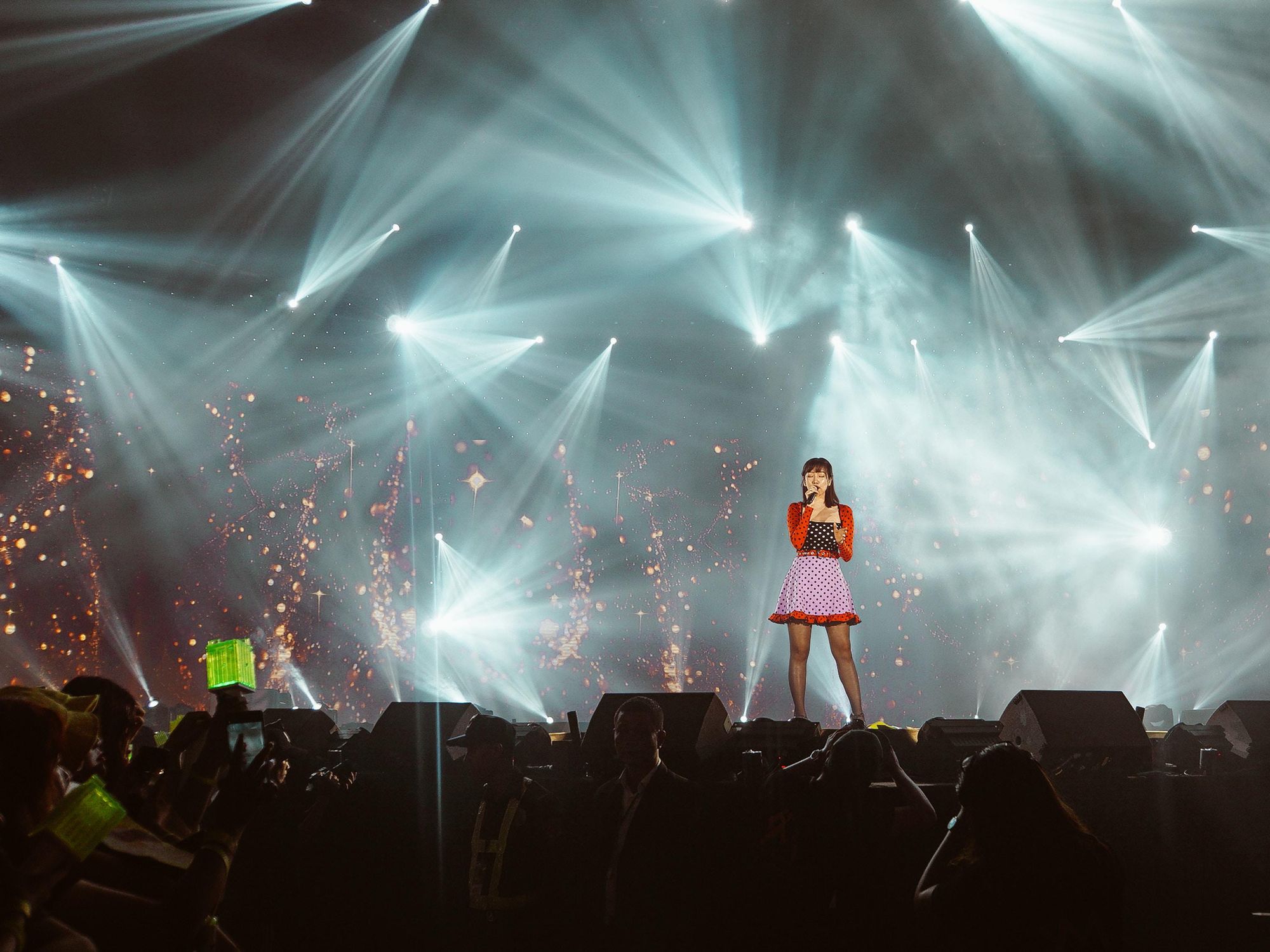Sexism, Ageism and Lower Pay: Female Musicians Struggle for Equality in Male Dominated Industry
Breanna de Vera is dot.LA's editorial intern. She is currently a senior at the University of Southern California, studying journalism and English literature. She previously reported for the campus publications The Daily Trojan and Annenberg Media.

Who run the world?
For Beyonce, the answer is "girls!" But, it doesn't feel like that in the male-dominated music industry where sexism and ageism reign supreme, according to a new report. Despite megastars like Beyonce, Taylor Swift and Madonna, women in the industry still feel it's difficult to climb the ladder of success and that it's causing women artists to quit.
MIDiA Research, in collaboration with digital music company Believe and its subsidiary TuneCore, released "Be the Change: Women Making Music 2021," a report on female creators' experiences in the music industry.
While most female creators surveyed believe transparency and discourse about gender equality have improved, over 80% of the respondents surveyed said it's still harder for female artists to receive recognition than their male counterparts.
"The main challenges are sexual harassment and objectification," said Mark Mulligan, MIDiA's lead music analyst who worked on the report. "Those are two different things, but they're also causally linked… [and they] are amplified or magnified within the music business — so many female artists are presented in a way that male artists are much less so."
MIDiA surveyed 504 respondents — of which are 401 female creators — around the globe. These respondents are all part of the music industry, as singers, songwriters, DJs, artists and producers. They have different degrees of independence as well — some are independent artists, others are their own managers or are signed to labels.
The vast majority of the women surveyed find that the music industry treats women differently. Eight out of 10 women surveyed experienced sexual harassment at some point in their careers.
"The representation of women in music, even at the top of the charts, has not improved in the last decade ... in some cases it has actually gotten worse," said TuneCore Chief Revenue Officer Andreea Gleeson.
Over 90% of women experienced unconscious bias — one singer-songwriter was told another female singer-songwriter on the festival bill was her "serious competition," when there were plenty other artists on the lineup. A female sound technician says she was told she was unable to move up in her career by male counterparts who were no more skilled.
As a result of their experiences in the industry, many women choose to work alone or exclusively with other women. Dominique — a singer-songwriter that participated in a panel presenting the study's findings — said she decided to work alone after being brushed off by male producers.
"You don't feel like your ideas are being taken into account, and you always get shot down," Dominique said. "Regardless of how bad my music may come out, I want to be the only person working on it."
She wound up writing a hit song called "Girls Can't Produce," which went viral on TikTok; the song's title was taken from a snidely sexist comment posted beneath a video she made detailing her aspirations.
These biases and attitudes toward women translate into experiences that make female artists uncomfortable, less confident, and ultimately, more likely to leave the industry, the report found. One anonymous respondent cited in the report said: "Why do women leave music or not go into it? For some, there's 'only so much sh*t you can take.'"
The study was partly inspired by TuneCore's examination of the artists that use its digital music distribution services. The company said it found only 28% of its artists are female. Although that percentage is higher than the 11% of female artists represented in the industry as a whole, TuneCore found it surprising, said Gleeson. Because its artists are pursuing a DIY distribution path by using their platform, they might expect a lower barrier of entry.
The survey asked respondents what urgent changes are necessary to improve the music industry for women. The most popular response was "more equality and opportunity."
"Now that might sound like a fairly self evident thing, but it's also really quite subtle," Mulligan said. "They just want to have the same opportunity to succeed — their male counterparts have the same aspirations, they work in the same industry — but the industry treats them differently."
Breanna de Vera is dot.LA's editorial intern. She is currently a senior at the University of Southern California, studying journalism and English literature. She previously reported for the campus publications The Daily Trojan and Annenberg Media.




 Image Source: Skyryse
Image Source: Skyryse
 Image Source: Northwood Space
Image Source: Northwood Space